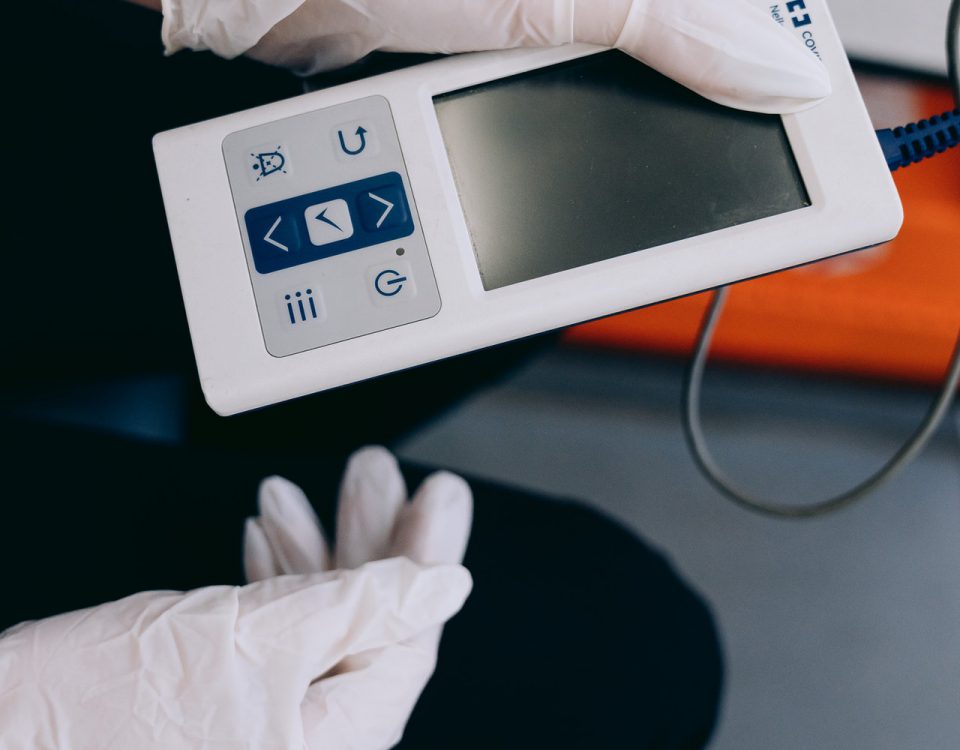The Cost of Inventory (Mis)Management
An effective inventory system is a prerequisite for a successful supply chain. This is especially true in medical device inventory management, due to long lead times, critical expiration dates, and just much greater risks in general. Nothing is more dangerous than failing to locate the appropriate surgical equipment during an emergency as it not only impacts the daily operations but also puts lives at risk.

On average, medical device companies sit on 150 days of inventory. This ties up important working capital and exposes it to volatile market conditions. Needless to say, this isn’t ideal but the balance between ample and economical inventory is delicate and hard to achieve – hard, but not impossible.
To better understand this problem (and how to fix it), in this article, we’ll break down the costs that often go unnoticed in this $450 billion industry – the costs of inventory management (and mismanagement).
The High Cost of Inventory Errors
COVID-19 exposed existing structural weaknesses in healthcare supply chain systems that lacked resilience and capacity. Here are some statistics to put COVID-19’s impact on medical inventory management into perspective:
- Up to 83% of healthcare organizations reported increased lead times or delays in acquiring emergency supplies.
- At least 81% of those organizations made adjustments by simply increasing inventory levels to try and weather the disruptions and fluctuations.
- McKinsey predicted a sharp decline in MedTech procedures as 90% of medical-device exports came from countries that were hit hard by COVID-19 (to varying extents).
But among all this, there was a silver lining. The pandemic allowed administrators to identify the need to improve their inventory management and prediction to avoid problems in the future. Even minor inventory errors can cost thousands of dollars when hundreds of thousands of dollars are at stake.
In essence, improving inventory visibility and implementing a modern inventory management solution is the future.
Unfortunately, a survey by Sage Growth involving over 100 hospitals’ supply chain showed that around 50% of them still used outdated processes and manual tools to manage inventory and supply chain activities. These tools and processes make collaboration difficult, offer limited visibility, and leave room for human errors. All of this results in overstocks, stockouts, and unnecessary results.
That said, the problem does not only plague medical companies but nearly every enterprise. In fact, inventory mismanagement is responsible for $224 billion in losses to US businesses annually and $1.75 trillion globally.
Challenges in Medical Inventory Management
Some of the biggest and most common challenges companies in the healthcare industries face when they use archaic inventory tracking methods include:
1. Trouble maintaining information accuracy
Inventory management in the healthcare industry has a myriad of moving parts. Whether it’s stock levels, expiry date of medical devices, maintenance schedules – entering all that information manually creates room for error, with little to no cross-checking capabilities
2. Time-consuming manual processes
Unorganized manual spreadsheets make it time-consuming and difficult for users to find what they are looking for, be it supplies or performing manual inventory counts. A digital solution significantly speeds up things while offering additional features such as search, calculations, reminders, and more.
3. Monetary Losses

Healthcare providers work to save lives, but they’re still in business. Expired medical supplies, missing or broken medical devices, and equipment mean lost revenue. Oversights involving overlooked expiry and maintenance dates could translate into the purchase of unnecessary supplies and expensive equipment that takes a toll on a company’s finances. Statistics show that for every $1 of sales made, U.S. retailers have an additional $0.43 worth of inventory.
4. Control or Organizational Failures
Papers documents are fragile and keeping a vast amount of medical records in such a medium record can not only be frustrating but also very expensive for medical companies. Due to stricter regulations, losing medical records can result in costly fines and even losing medical licenses.
5. Manual Systems aren’t team-friendly
Teamwork is crucial for any business but especially so for a medical company and this translates to a company’s healthcare inventory system as well. In regular day-to-day operations, paper documents are objectively inferior to digital documents in most scenarios. Conventional inventory tracking systems are only accessible to one person and cannot connect to the cloud or work on mobile devices. The result is a lack of sync in information provision. On the other hand, digital solutions can be shared quickly and be accessed from anywhere in the world. This also facilitates collaboration and visibility within the organization.
The Benefits of Effective Inventory Management
Thankfully, the challenges of conventional medical inventory management can be solved using modern software solutions. In fact, according to a recent study by KPMG, medical device manufacturers and distributors can lose 21 percent of profits by not embracing digital transformation.
The greater profits are driven by a number of But with these inventory management solutions, advanced software does all of the heavy lifting, resulting in:
1. Less Paper Work Translates To More Saved Time
Healthcare inventory management systems have a visual user interface that keeps information in an organized manner. Businesses can go paperless as there’s no more need for printing. The precision of these apps means medical companies enhance workflow efficiency and divert more resources to core business activities. Modern, intuitive healthcare inventory systems also simplify the daily medical procedures and help save time and resources.
2. Helps with Medical Equipment Management
Healthcare companies spend a fortune replacing misplaced or damaged equipment. Effective healthcare inventory management software can help save costs by monitoring how the equipment is being handled.
These software solutions give personnel accountable for expensive equipment a helping hand – reducing the odds of human error such as miscalculations, missing deadlines, or miscommunication.
In doing so, businesses prevent expired medical supplies and misplacing expensive devices, two practices that bleed out money unnecessarily.
3. It Improves Precision
Replacing office tools such as spreadsheets with healthcare inventory management software boosts your inventory precision and accuracy. You eliminate avoidable mistakes by automating a system to keep tabs on stock levels, expiration dates, and equipment or device maintenance. Modern healthcare inventory management systems are backed by the cloud and directly connected to mobile Apps.
A digital inventory management system keeps track of the restocking of supplies and equipment as they leave the facility with far greater precision. End users like medical administrators, doctors, and nurses have access to the inventory system and will not introduce confusion or miscommunication when seeking inventory information. For instance, healthcare professionals responsible for controlled substances are required by law to report lost or misplaced supplies. Using an accurate and updated inventory system saves them from becoming victims of safety issues in case of theft and prosecution from policy enactors. Modern inventory management systems save dollars and cents, but most importantly, they save lives by reducing errors by up to 41.4%.

Wrapping up…
Healthcare inventory management apps are the go-to solution for keeping the cost of inventory organization manageable. These modern apps can be customized for individualized business needs and objectives. Effective inventory management is crucial as it ensures that none of the hundreds of thousands of dollars in specialized materials and equipment goes to waste. It also helps you manage running your healthcare facility effectively while also improving productivity and facilitating collaboration within the workforce.
Say goodbye to complicated spreadsheets, lost supplies, and other time-consuming solutions. Save your time and money by choosing a secure, cloud-based system that connects your entire teams across departments, no matter whether they’re located.
Surgicloud is a cloud-based inventory management, billing, and scheduling solution that optimizes and coordinates and device billing for hospitals’ surgical teams, medical device manufacturers, and distributors. Get in touch to request a demo today.




